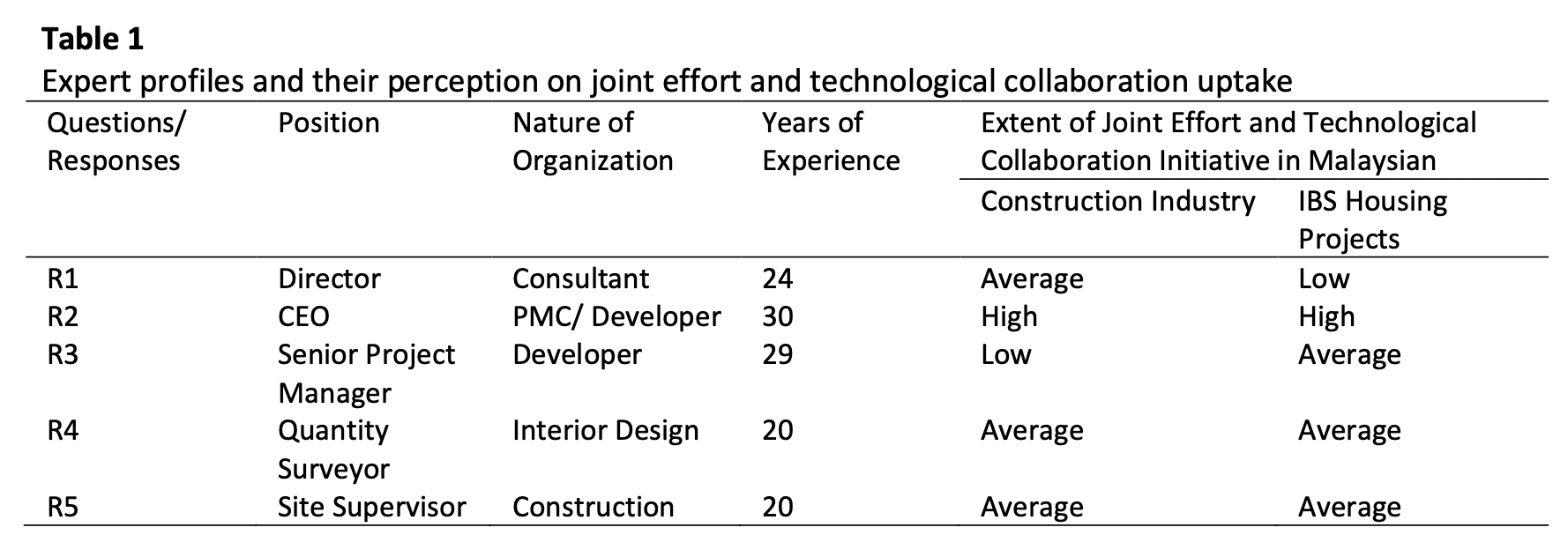Expert Perspective on the Barriers and Enablers of Joint Effort and Technological Collaboration among Malaysian Industrialized Building System (IBS) Housing Project Supply Chains
DOI:
https://doi.org/10.37934/araset.30.3.383393Keywords:
Barriers, enablers, housing; , Industrialized Building System (IBS), joint effort, Malaysia Supply Chain, technological collaborationAbstract
Housing shortages has been a recurring dilemma for Malaysia and the domination of traditional methods have made it hard to deliver targets. With today’s construction industry being more complex, specialized, and demanding, Industrialized Building System (IBS) has been promoted to help the sector deliver citizen’s house demands. However, this initiative has been hampered by fragmentation issues causing IBS to be inefficient. Joint Effort and Technological Collaboration, which stems from Supply Chain Management (SCM) philosophy has been suggested as the way forward for the industry by capitalizing on the various tools available to improve coordination, integration, and information flow. However, many proven successes have not translated to higher adoption rate in Malaysia. Implementations are rather scarce. This paper therefore sheds light into the barriers and enablers of Joint Effort and Technological Collaboration uptake among Malaysian IBS housing project supply chains from the perspective of industry experts. Semi-structured interviews were undertaken on five (5) practitioners with a minimum of twenty (20) years’ experience for a deep scrutiny on the matter and responses were analysed using content analysis. Finding indicated that the main barriers stemmed from commitment issues, indicating their hesitance towards committing to positive changes in practice, which hampers virtually any initiative. On the other hand, most significant enabler to Joint Effort and Technological Collaboration rooted on the willingness of industry players to transform themselves and adapt to new technologies and working culture. The outcome of this study not only contributes to the body of knowledge regarding collaborative initiatives in construction, but it is also expected to benefit the industry on identifying the stopping blocks and ways forward for better diffusion of these initiatives for future success.
Downloads





























